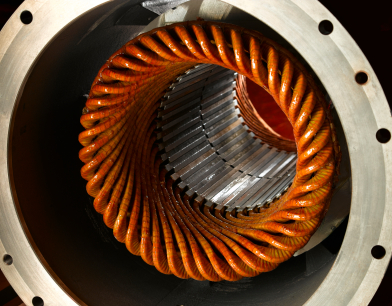
Program Description:
Innovation Need:
There is a growing global shortage of rare earth materials used in magnets. The cost of these materials has increased dramatically since 2010 alone. Demand for technologies that have relied on rare earths continues to rise in a market where the overwhelming majority of the supply is produced outside of the U.S. ARPA-E provides funding for early-stage alternative technologies that reduce or eliminate the need for rare earths by developing substitutes in two key areas: EV motors and wind generators. Though domestic supply of rare earths is increasing, the demand is increasing quickly as well. Therefore, technological advances that utilize low-cost and abundant alternatives such as manganese and nickel will become increasingly vital to our national economic and energy security. Alternatives must meet or exceed the performance of their rare earth predecessors while remaining cost-competitive. With nearly one million EVs expected on the roads by 2015, the design of new motors that include little-to-no rare earth content will have positive implications for the transportation sector. Likewise, wind energy could meet 20% of the nation’s electricity demand by 2030, placing increased emphasis on the need for turbines that do not rely on rare earth-based magnets to generate electricity.
Potential Impact:
If successful, REACT’s 14 projects would support EVs and wind generators that rely on low-cost, abundant materials. Aiding the spread of these technologies would have a profound effect on the level of greenhouse gases produced in the U.S.
Security:
The U.S. produces a small fraction globally of industrial rare earths. Developing alternatives to the use of rare earths has potential to reduce our dependence on these materials and will have a positive impact on our national economic and energy security.
Environment:
The transportation and electric power sectors account for nearly 75% of U.S. greenhouse gas emissions each year. Better permanent magnets would support the widespread use of EVs and wind power, significantly reducing these emissions.
Economy:
The U.S. spends nearly $1 billion per day on imported petroleum. Enabling the use of EVs would help insulate our economy from unexpected spikes in the price of oil.
Contact
Project Listing
• Argonne National Laboratory (ANL) - Exchange-Spring Magnets
• Baldor Electric Company - Rare-Earth-Free Traction Motor
• Brookhaven National Laboratory - Improved Superconducting Wire for Wind Generators
• Case Western Reserve University - Iron-Nitride Alloy Magnets
• Dartmouth College - Manganese-Aluminum-Based Magnets
• Northeastern University - Iron-Nickel-Based Supermagnets
• Pacific Northwest National Laboratory (PNNL) - Manganese-Based Magnets
• QM Power - Efficient, High-Torque Electric Vehicle Motor
• University of Alabama - Rare-Earth-Free Nanostructure Magnets
• University of Houston - Low-Cost Superconducting Wire for Wind Generators
• University of Minnesota (UMN) - Iron-Nitride-Based Magnets
• University of Texas at Dallas (UT Dallas) - Double-Stator Motor Design
• Virginia Commonwealth University (VCU) - Carbon-Based Magnets
